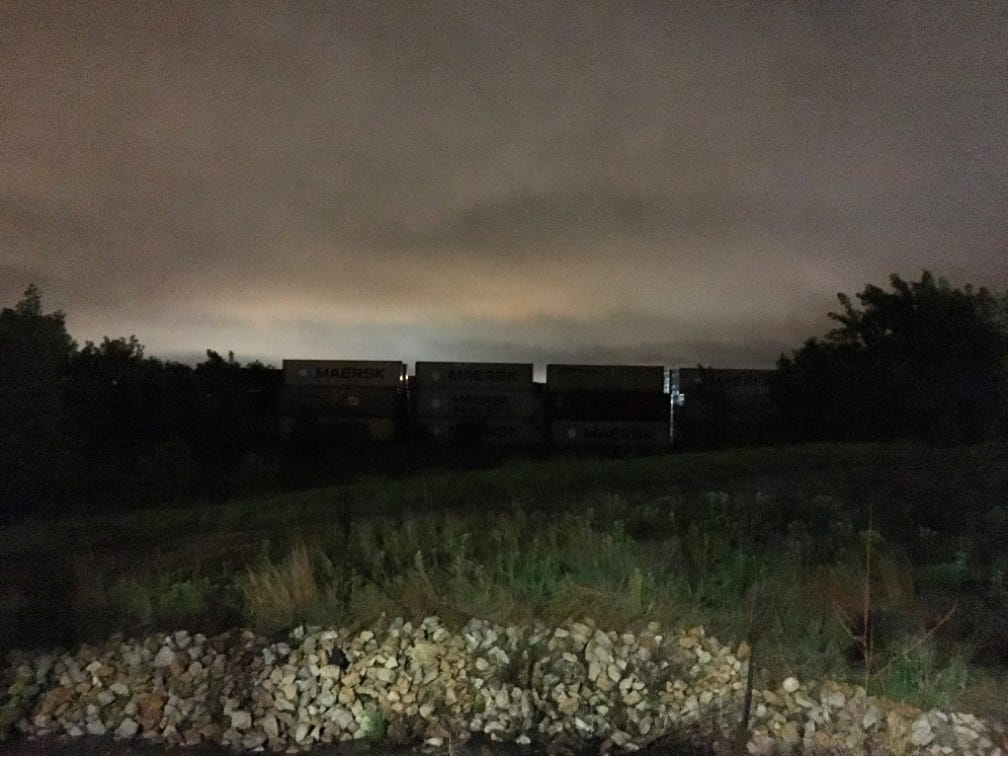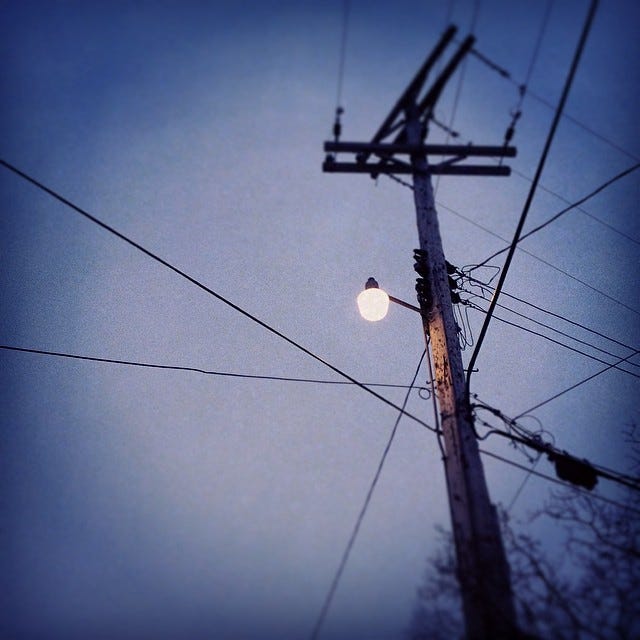Nightwalking
A primer
“There are a thousand and one gates leading into the orchard of mystical truth. Every human being has his own gate. We must never make the mistake of wanting to enter the orchard by any gate but our own. To do this is dangerous for the one who enters and also for those who are already there.”
— Moshe the Beadle, from Elie Wiesel’s Night
I thought it happened just over a year after my parents died in 2008.
But I was wrong.
Memory, you see, is a cheat. “I remember,” you start to say … and I’m standing by ready with a “Yeah, well, whatever…”
As a longtime diarist I’m grateful to be able to dig into my journals and find out when I did the Nightwalking. I looked for the entry months before, since I’d tied the memory to the day I broke up with my girlfriend.
We’d been together for a year, but grew apart as 2009 began. On a May evening, she didn’t come home. When I phoned her, the call went straight to voicemail. The next day I called her at work—she revealed she’d gone out with another guy and spent the night at his place. Right then and there I decided we were through. All I remembered was crying so hard I couldn’t see to drive my car home from work. I was afraid I’d have an accident, so I pulled down a side street and parked.
And sobbed.
I had to get somewhere where I could rest, or talk to someone. My parents were dead, my girlfriend was gone, and I never felt more alone.
When I recently looked for this incident in my journals, I was surprised to see it occurred a month after the breakup. My ex had gone abroad on a summer trip and it was a normal day at work—but one that became more and more claustrophobic. So I left the office early to go home and take care of myself.
Be kind, rewind. The story is correct, the date was not.
And that’s how Nightwalking begins.

It closes in, making a once-spacious and generous world very, very small.
But Nightwalking used to mean, “Me out walking at night.”
My late parents were pretty lax when it came to what we kids did in the evening, as long as we returned home at the prescribed hour. Sometimes that stretched beyond what we were able to grasp at the moment, but probably not by much. We were good kids. It was a different time.
I recall walking alone, but sometimes I was joined by friends. It’s the lonely walks I remember the most. At night. Down our street.
And so, Nightwalking.

Nightwalking was an opportunity to bask in all the day’s misplaced melancholy. Nighttime was perfect for it: dogs barked in the distance, their owners shouting for them to come in, car headlights snaked through streets and suddenly veered off, never to be seen again, and humming streetlights welcomed swirling insects and lonely Nightwalking boys who happened to pass underneath their shadows.
A lot of the spacey-dark music I was listening to also fell under that Nightwalking streetlight: nearly everything by The Moody Blues—but it could even be The Beatles with “No Reply,” a perfect Nightwalking song. Later came The Zombies and “Time of the Season,” and even later The Flaming Lips’ “The Sound of Failure.”
So, where does it begin and where does it end?
Is it just a sound inside our heads?
“I pray to the God within me that He will give me the strength to ask Him the right questions.”
— Moshe the Beadle, from Elie Wiesel’s Night“If they can get you asking the wrong questions, they don’t have to worry about the answers.”
— Thomas Pynchon, Gravity’s Rainbow
“—It’s dark.”
And it’s painful.
That’s the side of Nightwalking that I hope to write more about in future posts, mostly because I see a lot of it these days, especially over the pandemic.
Nightwalking thrives on silence and isolation, so it can generate fear and always be right. Caught in its spell, you are always wrong. You can’t express your dark emotions. Nightwalking says, “Hey, that’s okay. Just keep walking my walk.” These days I see people looking like zombies, worried, disheveled, angry and confused faces, all feeling lost—feeling like it’s forever night.
Oh, but it’s not.
It is, however, time to wake up and ask the right questions—those being the difficult questions—so we can move forward after years of fear, loss, grief, and despair. Many of those questions involve feelings and emotions and how they interact with thought, so folks out there familiar with cognitive behavioral therapy (CBT) might be familiar with the approach I’m hoping to take going forward. While I’m not a licensed psychologist, I will claim a lifelong familiarity with melancholia, and I’m hoping we treat the forthcoming conversations with the respect, circumspection, and yet with the courage and resolve they deserve.
Nightwalking gets a lot of bad press compared with the seeming “virtues” of Daytalking and Stargazing. But as I hope to show in the next post, it’s not about mental illness and it can’t be “cured”—only acknowledged and assuaged through some prompts and deeper exploration that we’ll tackle in future posts.
Moreover it’s part of the vital trilogy of biology, behaviors, and beliefs that have made me who I am.
Maybe you, too?


